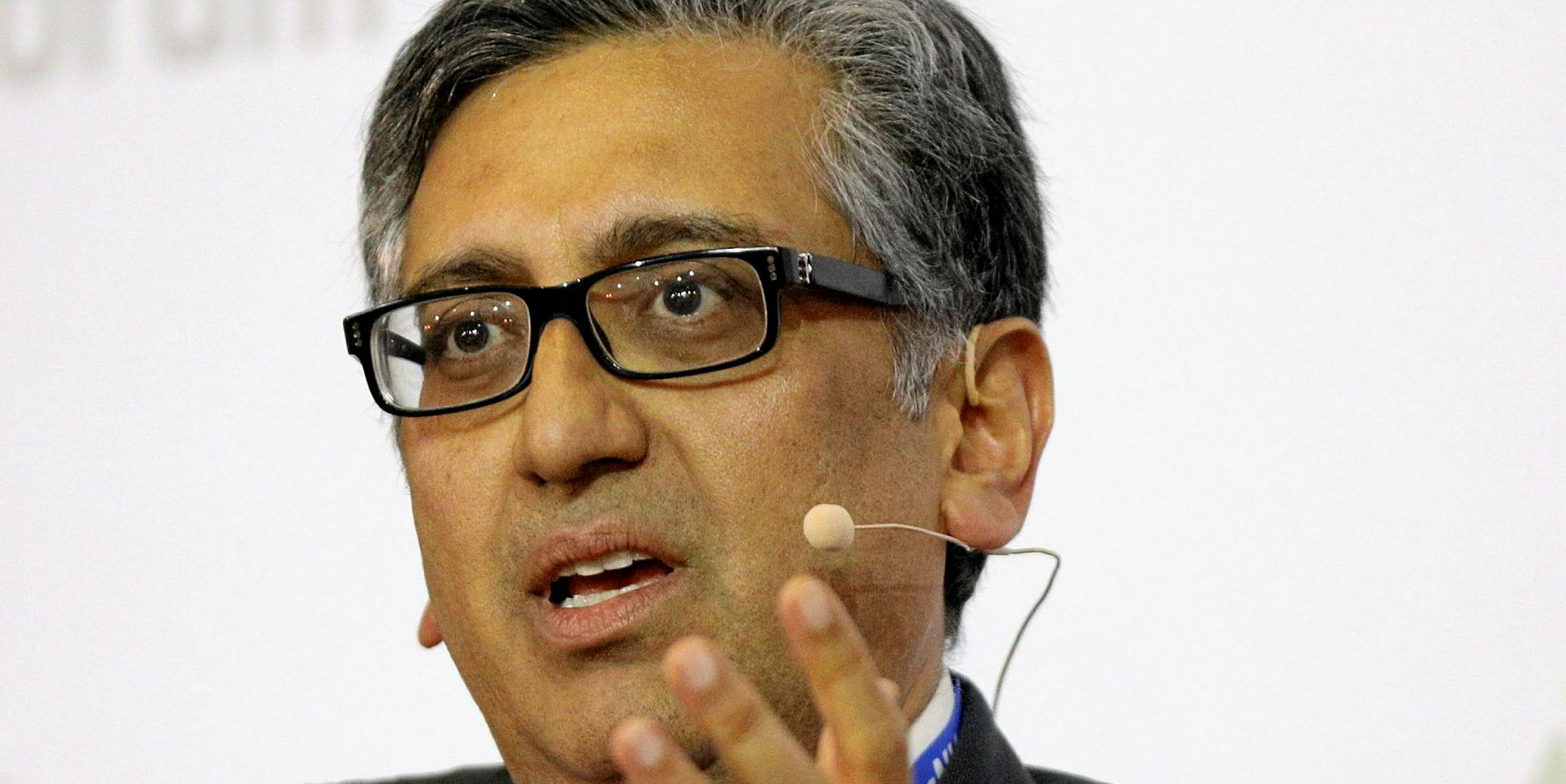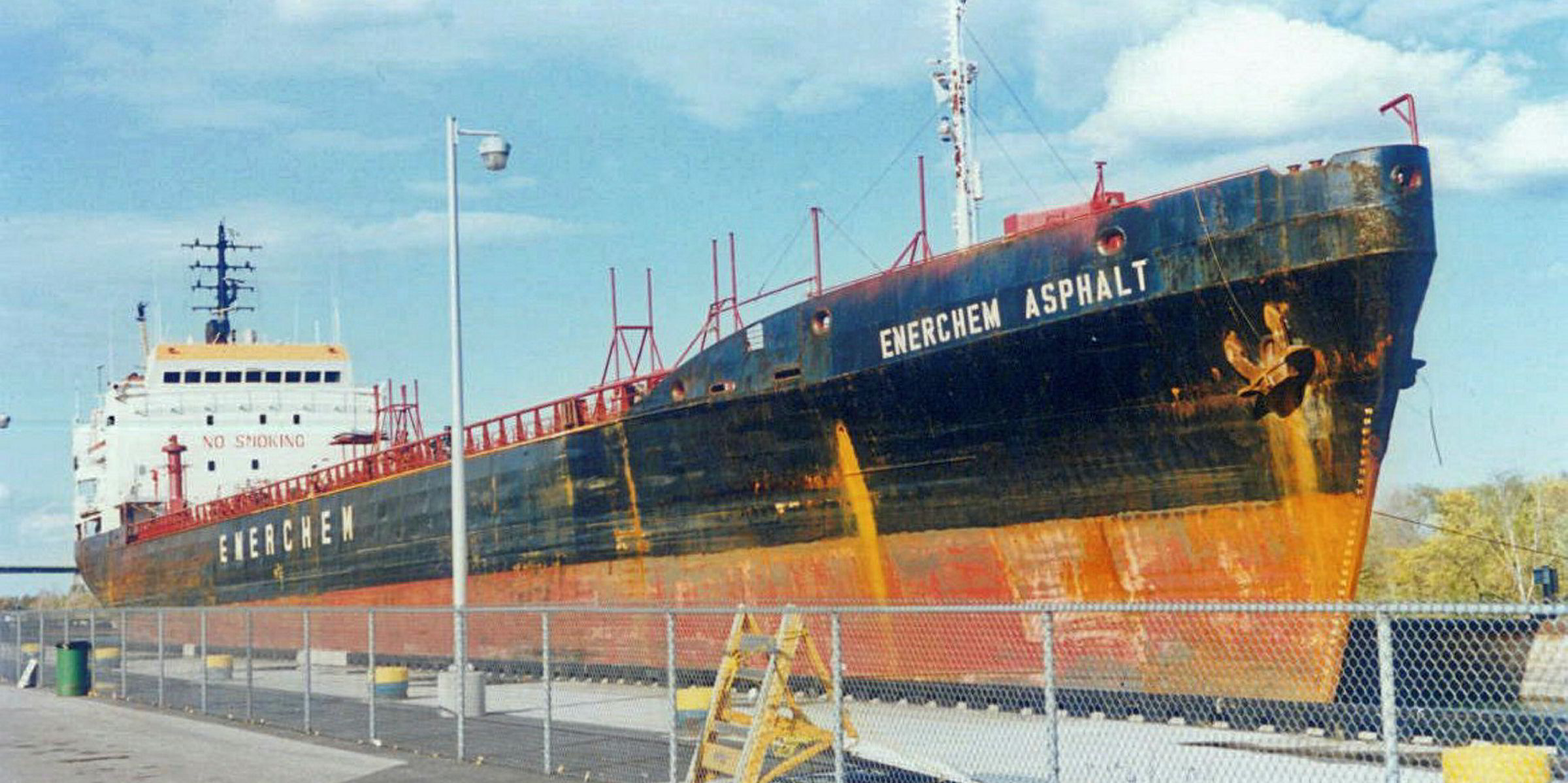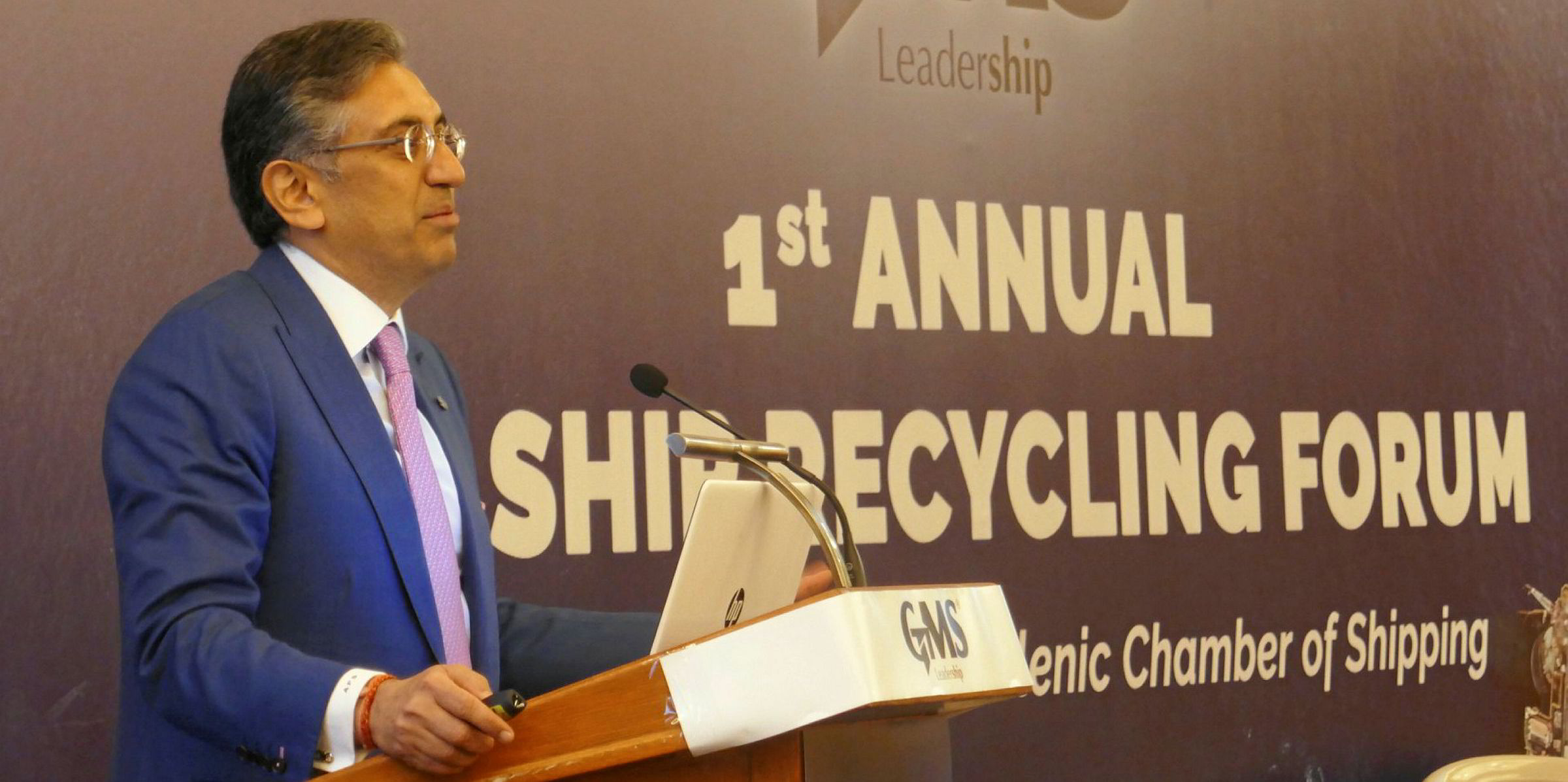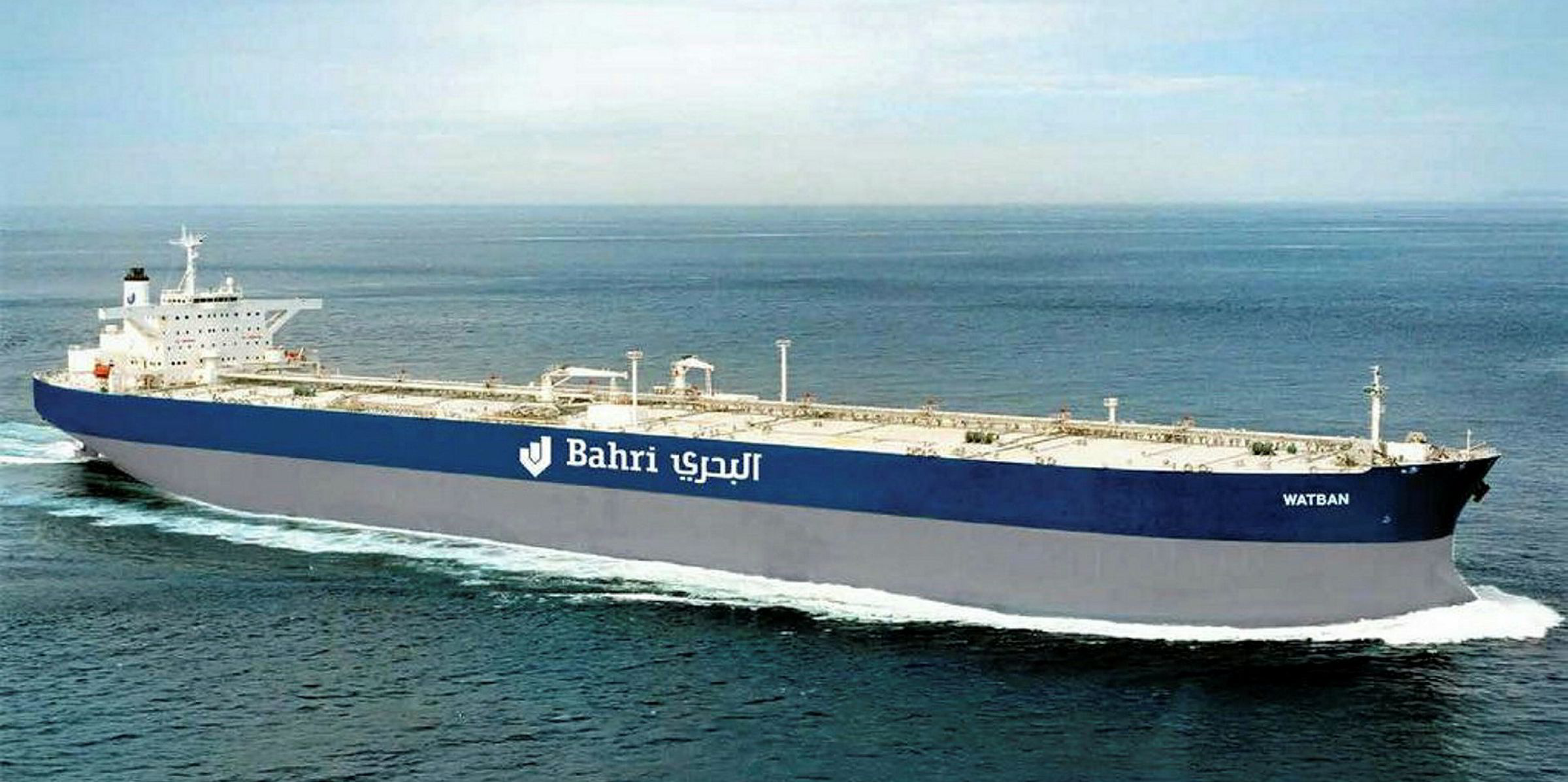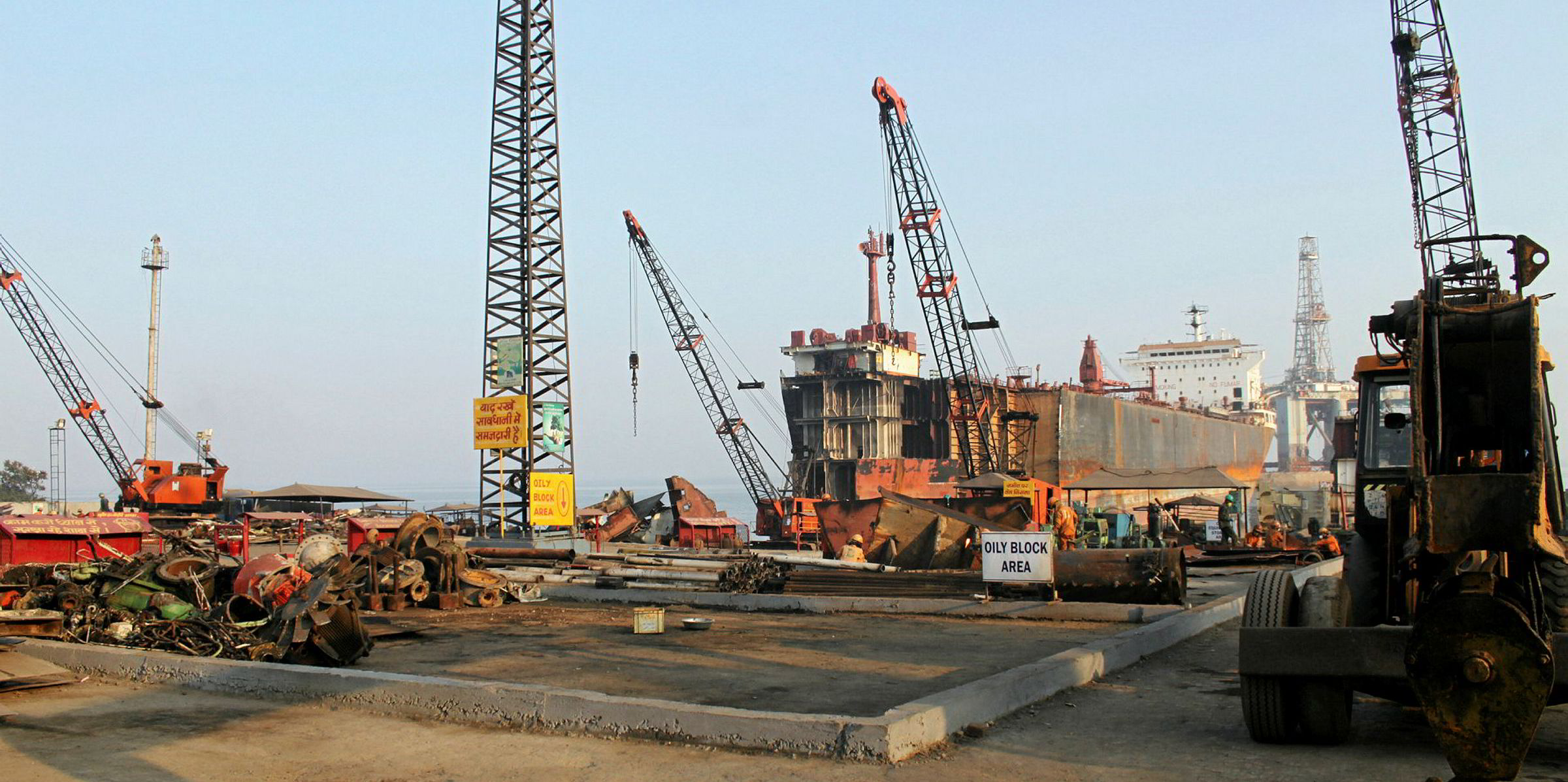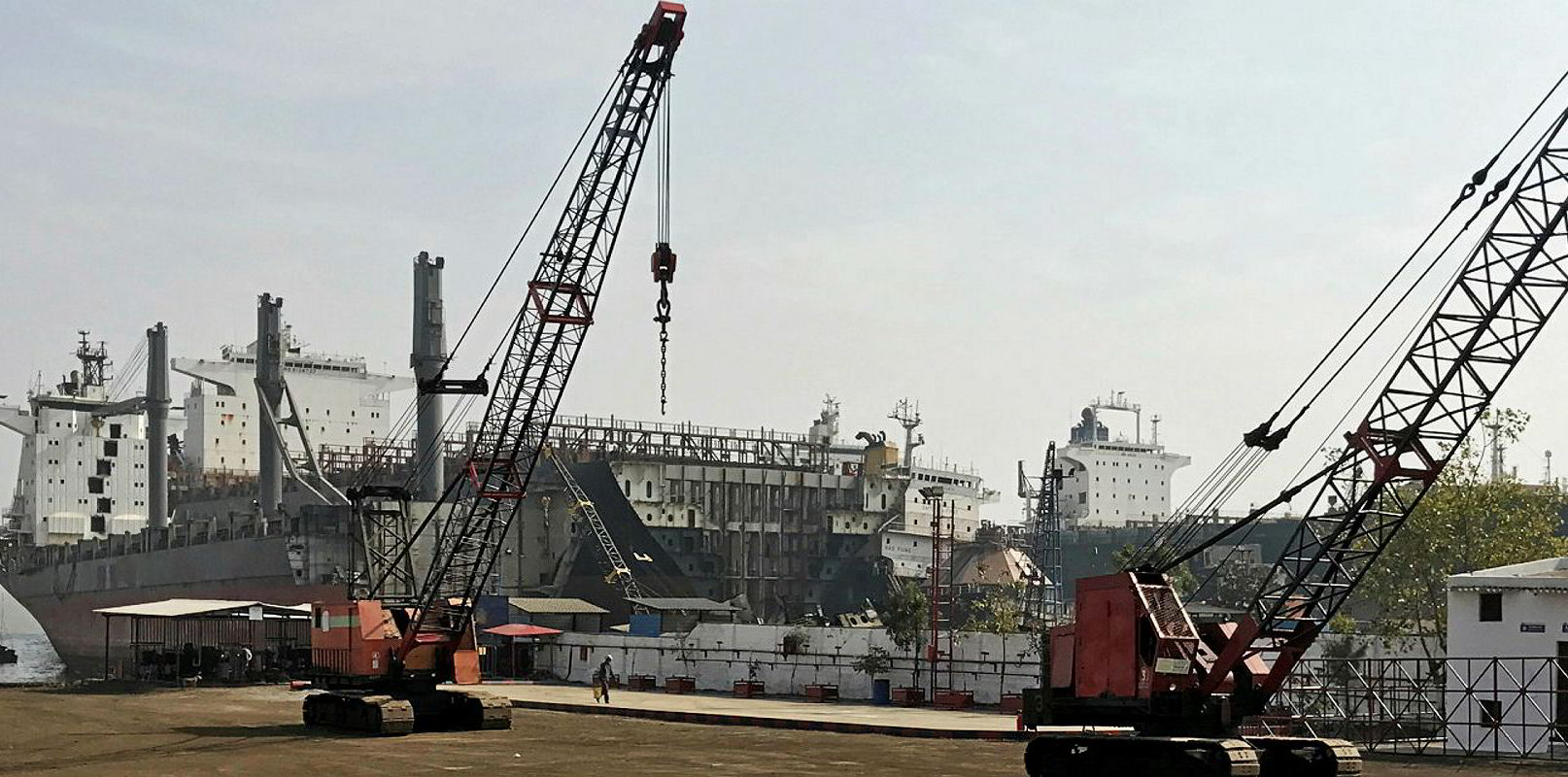It comes as no surprise that the biggest cash buyer in ship recycling disputes the claim made by critics that shipbreaking is the world’s most dangerous job.
GMS founder and chief executive Anil Sharma has been in the business since the early 1990s, when he bought vessels from the US Maritime Administration on behalf of Indian recyclers.
But, he says, plenty on the waterfront has changed since then, and with the ongoing environmental and safety improvements being made by yards in India, he believes Alang, the hub of ship scrapping in the country, will become 100% “green”in 2020.
Win-win ambition
“Everyone is motivated to do this,” he tells TradeWinds. “It is good for everyone.”
It is an argument that unions and environmental lobby groups see somewhat differently.
IndustriALL Global Union, which claims to represent 50 million workers in 140 countries, has launched its Campaign to Clean Up Shipbreaking, which it dubs the world’s most dangerous job. It claims “workers in this industry suffer precarious working conditions, lack training and face serious hazards”.
When I hired people, I used to ask them: ‘Why do you want to work for me? I am supposed to be a criminal based on what you see in the newspapers. I’m supposed to be the bad guy.’ Who would want to work in an industry that pollutes and kills people?
Anil Sharma
An IndustriALL spokesman says while some of the Indian yards have improved “dramatically”, it is not the case in Pakistan, “where we regularly see accidents”.
He says: “I don’t think we are going to see an across-the-board improvement until the Hong Kong Convention is ratified and there is a global standard. There will always be economic pressures to recycle somewhere else.”
Negative sentiment comes also from the Brussels-based lobby group NGO Shipbreaking Platform, which only last week highlighted the death of another ship breaker in Bangladesh.
The beach at Chittagong in Bangladesh is too often the scene of casualties, including in May the death of two workers and several injured after a blast on an aframax tanker. The NGO condemned conditions at the yard as shocking.
Zero fatalities
But such reports of injuries and fatalities only serve to mask the track record of individual yards, according to US-educated Sharma.
Originating from Bhavnagar in Gujarat, which is also home to Alang, Sharma points to a halving of annual shipbreaking deaths in India since 2014, said to have been recorded by the the recycling workers union, the Alang Sosiya Ship Recycling & General Workers' Association (ASSRGWA).
“With the training in India, I hope we reach zero fatalities,” says Sharma.
There are about 120 active recycling yards in Alang that are said to employ about 30,000 staff, with others working in rolling mills and as scrap traders.
The Gujarata Maritime Board claims to have trained many thousands of workers. GMS alone says it is training 12% of the Alang workforce.
Sharma says that when he entered the industry he was surprised at the lack of international guidelines or criteria that could be used to differentiate between good and bad working practice.
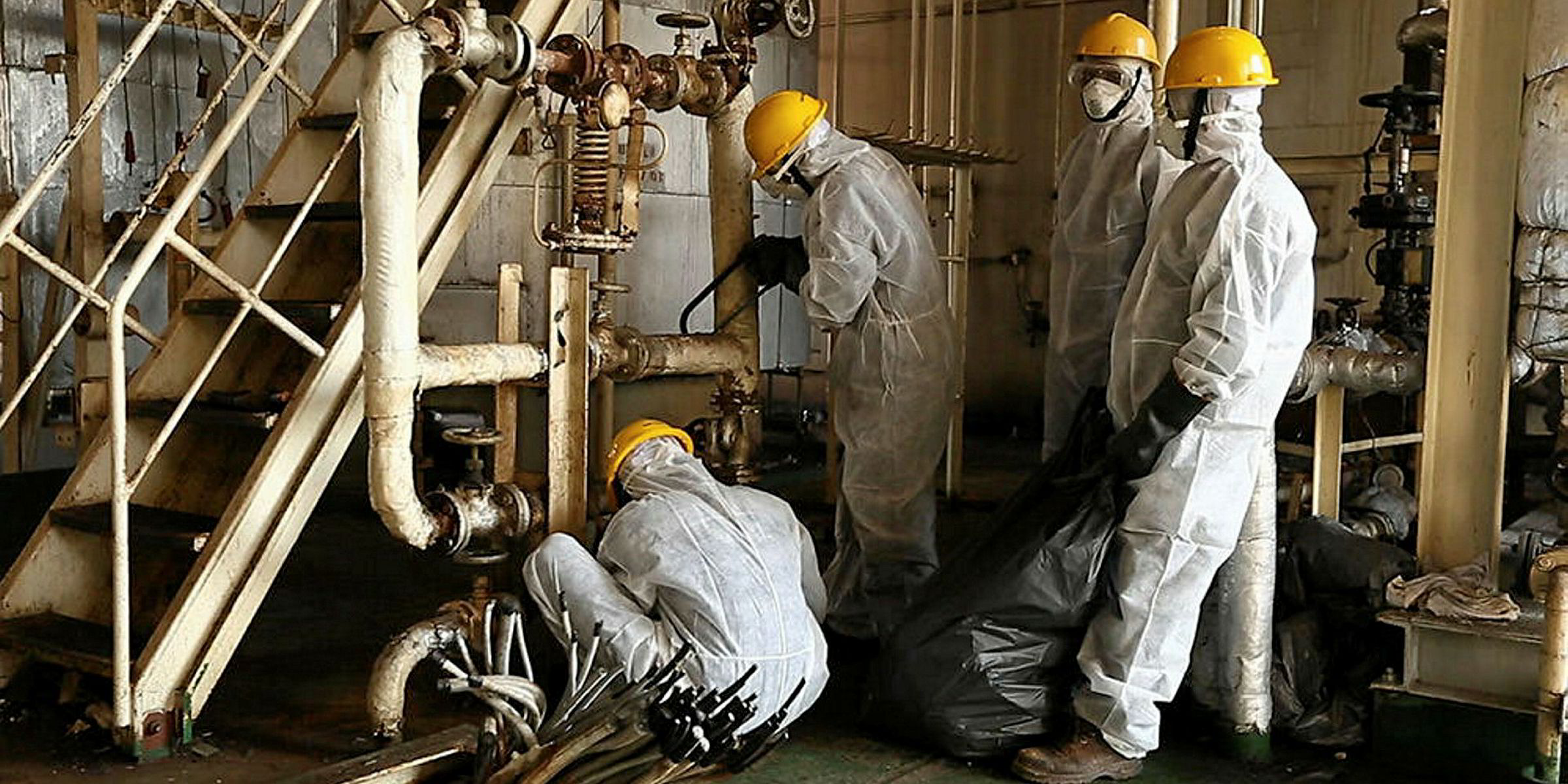
“We needed a standard and from day one I have been fighting for it,” he claims.
“When I hired people, I used to ask them: ‘Why do you want to work for me? I am supposed to be a criminal based on what you see in the newspapers.
Blacklisted
"I’m supposed to be the bad guy.’ Who would want to work in an industry that pollutes and kills people?”
In India, he was effectively “blacklisted”. His efforts to improve standards left him accused of seeking to “close down the industry”, Sharma says.
The tide turned four years ago, he says, when the first Indian recyclers — Priya Blue Industries, RL Kalthia Ship Breaking, Leela Ship Recycling and Shree Ram Vessel Scrap — were certified as being compliant with the Hong Kong International Convention for the Safe and Environmentally Sound Recycling of Ships (Hong Kong Convention).
NGO Shipbreaking Platform has been vocal in challenging the value of such statements of compliance (SoCs).
“Clearly, SoCs do not provide a guarantee that conditions at the yard are safe and environmentally sound," the lobby group says. "Not only are there problems with shipbreaking in the intertidal zone ignored, but it is understood some yards have SoCs without impermeable flooring also in the secondary cutting zone.
“Finally, SoCs are issued to yards where hazardous materials cannot be safely managed downstream — but are instead left to accumulate in small storage facilities onsite.”
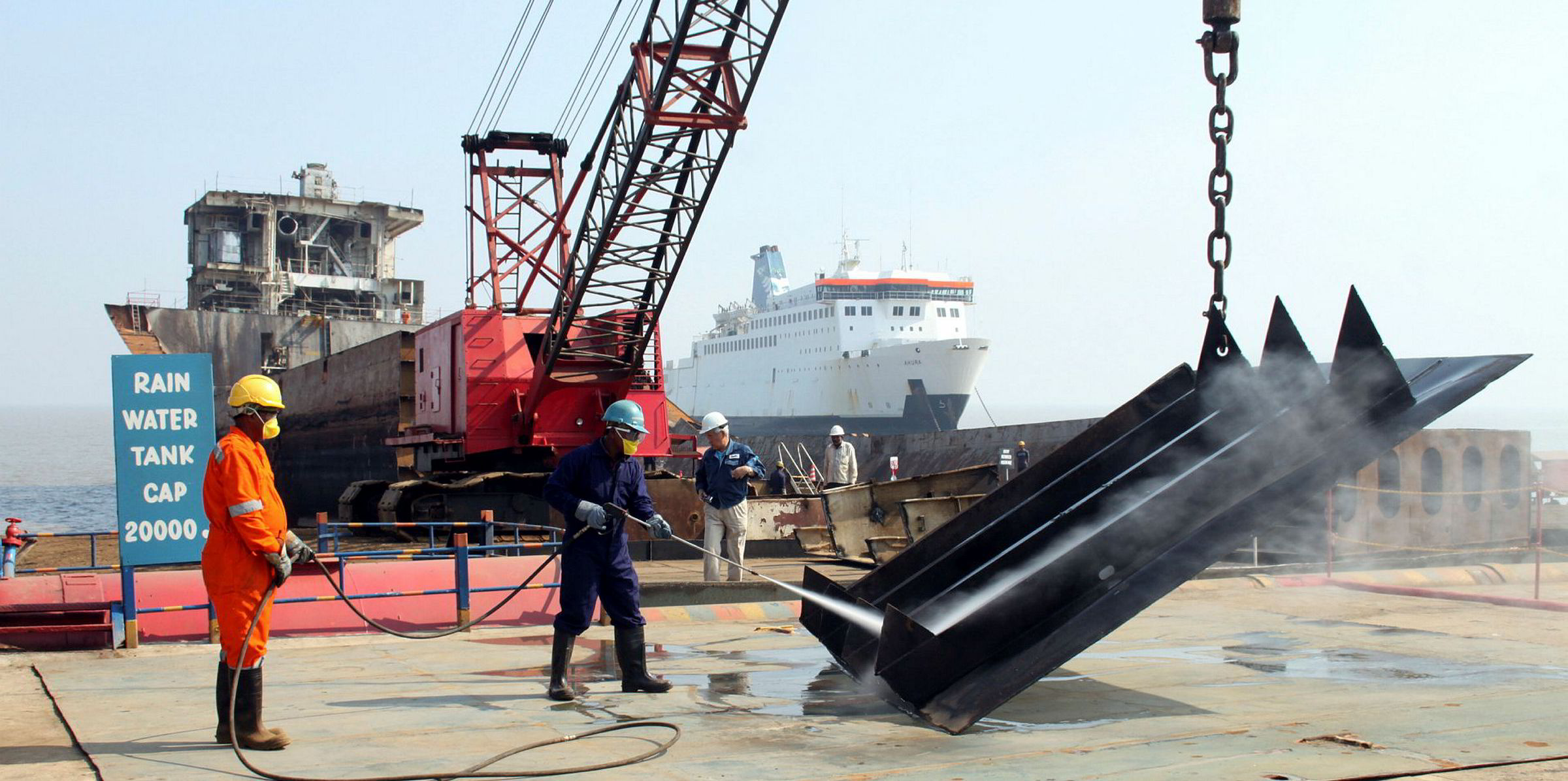
IndustriALL's spokesman says the union had no reason to doubt that SoCs issued reflected improvements at the yards, while Sharma insists: “It is incredible the progress that is happening in India.”
Where there were four yards initially issued with SoCs, or 3% of the total number of yards in Alang, today some 77 yards, or 65%, have been certified as complying.
Until a few years ago, Indian recyclers were wary of “foreigners”, especially from Europe, Sharma says. NGOs visited yards claiming they wanted to help but instead put a “different spin” on their stories.
I felt the people working on the convention wanted to do something sensible. They didn’t come with a closed mind. It was invaluable for them to see for themselves the issues on the ground
Anil Sharma
Eventually, no visitors were welcome but things changed with the Hong Kong Convention.
Debt of gratitude
“I felt the people working on the convention wanted to do something sensible,” Sharma says. “They didn’t come with a closed mind. It was invaluable for them to see for themselves the issues on the ground.”
Sharma says the recycling industry owes a “debt of gratitude” to the Japanese shipowners that pushed for the monitoring of yards, initially by ClassNK, and in the issuing of SoCs, where Italian classification society RINA and the Indian Register of Shipping became involved.
He argues that these classification societies cannot afford to risk ruining their reputations by permitting shoddy monitoring of facilities.
There was every temptation for recyclers to skirt the Hong Kong Convention’s “rigorous” documentation and training requirements initially, he says, as it took much longer to recycle vessels.
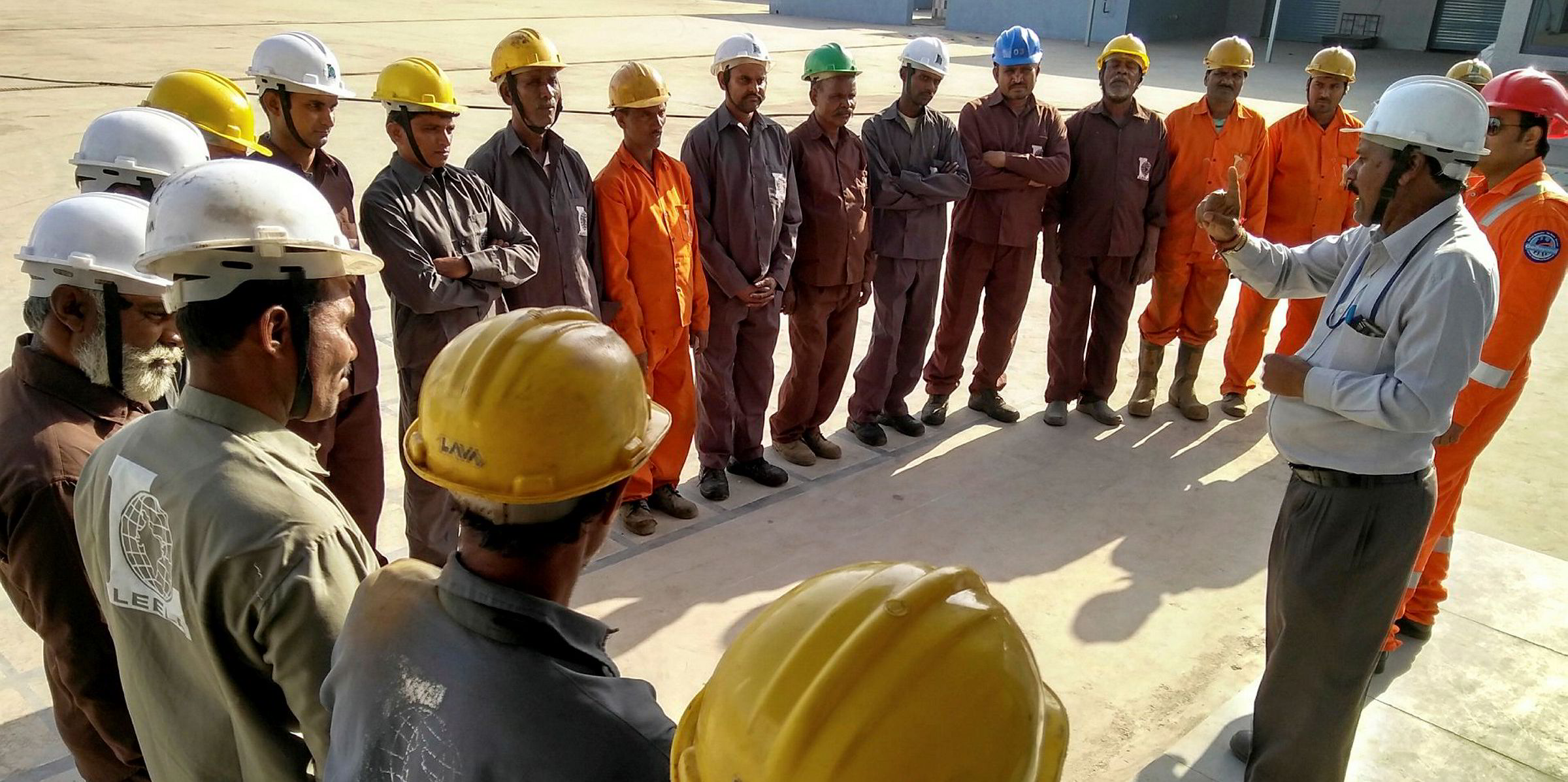
But fast forward and the feedback is that productivity, quality of work and profits have all improved at those yards that have complied, Sharma says.
Safety first
“Once people get used to it, they realise this is a good system of recycling vessels. That is why I am optimistic about shiprecycling in India and the progress we have made in 10 years.”
Sharma recollects visiting a yard in Bangladesh to find workers eating lunch out of their helmets. Persuading them to wear their helmets, along with shoes, was a challenge. All their lives they had walked barefoot through their villages.
In Alang, where safety and environmental progress has been faster, it is now the norm for safety procedures to be followed, Sharma claims.
Earlier this year, Nikos Mikelis — a non-executive director of GMS and an architect of the the Hong Kong Convention while at the IMO — was recognised by the ASSRGWA for his contribution to workers’ safety.
Some 62% of vessels scrapped in India last year were said to be at Hong Kong Convention compliant yards and, so far in 2019, that figure has risen to 78%.
Yard sales
Meanwhile, consolidation is sweeping through Alang's yards, with early investors in safe recycling now acquiring more plots, Sharma says.
The Gujarat Maritime Board is said to be currently auctioning off 20 more yards.
Also, the premium charged for “green” recycling has fallen sharply, the GMS chief executive says.
For VLCCs in India, this premium is still about 10% but Sharma says this reflects recyclers’ preference for smaller ships to minimise market and interest-rate risks. A large tanker may take at least six or nine months to scrap.
For owners of panamax, post-panamax or handymax containerships only about 2% of a vessel’s value is now sacrificed by using a Hong Kong Convention compliant facility, he says.
